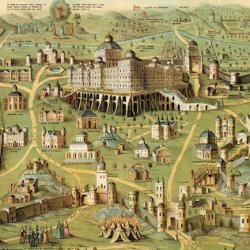In an article in Biblica, JG McConville points out that Kings does not offer much hope based on reforming kings. On the contrary, the books shows that the efforts of reforming kings are regularly undermined by their successors. Manasseh is not some strange exception but the norm: “Far from leading the reader consistently to expect salvation for Judah through a Davidic king, it leads him rather to expect the opposite. With the reforming kings there was an intensifying insistence that Reform did not in fact produce the desired results. We observed the surprising sequence of events in the account of Hezekiah. It is as if there are more and more violent swings between hope produced by the commendation of a king and new despair as the fortunes of the kingdom sink to further low points.” The narrator tells us that even after Josiah’s great reforms, Yahweh was still angry at the sins of Manasseh, and this “has the effect of finaly ruling out the possibility that salvation for Judah can be expected through any king.” McConville finds this same note struck in Solomon’s prayer in 1 Kings 8, where Solomon “places no weight on the dynastic promise, but harks back to the ancient deliverance of Israel from Egypt, and ot the concept of election.”
Two NT perspectives help to explain this: First, Kings is a great demonstration that the Law, even in its Davidic modification, failed, but leaves the hope that God will achieve what the Law could not do; and, Kings makes it clear that the redemption of Israel does not arise from straightforward moral or political reform. Rather, the renewal of Israel comes, paradoxically, through its death.














